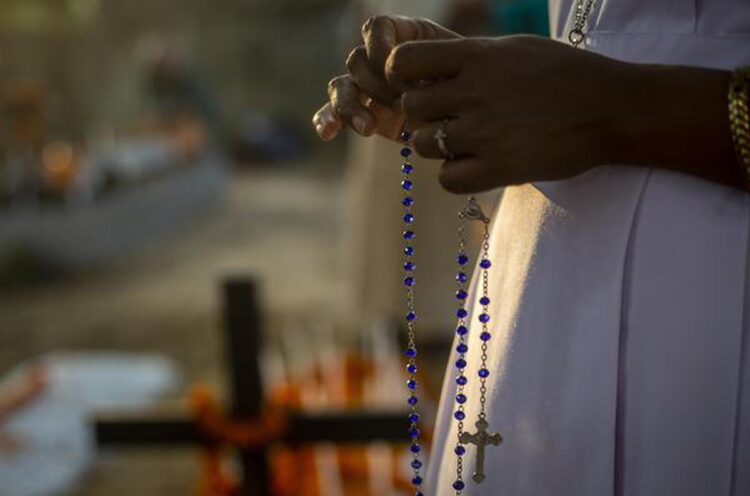KEY POINTS
- Two Hindu youths drowned during a secret baptism in Andhra Pradesh
- Families allege they were lured into conversion without consent
- Incident sparks outrage over rising coercive conversions in rural India
A heartbreaking tragedy struck Andhra Pradesh’s Bapatla district on Thursday when two young Hindu men lost their lives during a secret religious conversion ritual. The incident happened at Penumudi village when a group of 30 people arrived at the Krishna River for a baptism ceremony, organized by a local Christian pastor.
The victims, Thalakayala Gowtham (18) and Penumala Devadasu (19), reportedly went for baptism without informing their families. Both boys came from humble backgrounds, Gowtham had just completed his intermediate education and was preparing for EAMCET coaching, while Devadasu had recently completed a polytechnic course and was undergoing training in Hyderabad. Their parents are daily wage agricultural laborers.
According to the police, five individuals entered the deep waters of the Krishna River during the ceremony. While locals managed to rescue three, Devadasu and Gowtham drowned. Their bodies were recovered after a search operation. The local police confirmed the incident, and the deceased were taken to the government hospital for postmortem.
Conversion Behind Closed Doors
What makes this incident even more tragic is the secrecy around the baptism. Reports suggest the young boys were influenced and taken for conversion without the knowledge or consent of their families. This has raised serious concerns about the growing activities of religious conversion groups targeting vulnerable Hindu communities, particularly the poor and uneducated.
Local sources claim that these baptisms were part of an organized campaign by Christian missionaries who allegedly lure or emotionally manipulate Hindu youths into converting. Such incidents, according to some locals, are not isolated and are becoming disturbingly frequent in rural India.
Families Left Devastated and in the Dark
The families of the deceased were left shattered. They had no idea their children were even involved in any religious conversion. “We work hard all day in the fields to provide for our children’s future. And now they’re gone, deceived and drowned,” said one grieving family member.
The local community is also mourning the loss, but anger and suspicion are growing. Many villagers are now calling for a deeper investigation into the role of the pastor who led the ceremony and the ecosystem behind these conversions.
Repeated Patterns of Targeting Hindus
Unfortunately, this isn’t the first time such an incident has raised alarm. In January 2022, 17-year-old Lavanya, a student in Tamil Nadu, died by suicide after alleging in a video that she was being pressured to convert to Christianity by her school administration. The case triggered a wave of protests across the state, with many questioning how far such religious pressure tactics have spread.
In another shocking case, a Christian evangelist named Madhavan was allegedly burned alive by his own family members in West Bengal due to his conversion. Authorities reportedly dismissed it as a “family matter,” leading to outrage over the lax approach to religious violence, especially when it involves Hindus.
Many members of the Hindu community now feel they are under siege. From tribal areas in Jharkhand to coastal villages in Andhra Pradesh and Tamil Nadu, there are rising reports of conversion campaigns aggressively targeting poor Hindu families.
Yet, these cases are rarely investigated thoroughly. Many say the system turns a blind eye, whether due to political pressure, fear of backlash, or apathy. The legal framework to regulate religious conversions remains weak in most Indian states, and justice is often delayed or denied.
A Call for Justice and Protection
This tragic incident should serve as a wake-up call. There is an urgent need to protect vulnerable Hindu youth from predatory conversion practices. Laws must be implemented to ensure that conversions are not carried out through deception or coercion. More importantly, families must be informed, and consent must be clear and voluntary.
The deaths of Devadasu and Gowtham should not be forgotten. They are not just victims of a drowning mishap, they are victims of a much larger and more dangerous problem that continues to claim innocent lives.

















Comments